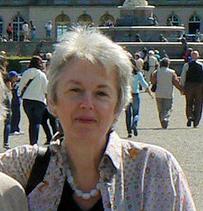Founded 1980
Chair:
Secretary:
Treasurer:
Graham Smith
Jan Thompson
Graham Mumby-Croft
Jenny Adams-Young
On Things Unknown: By Jenny Adams Young
Like many of you reading this publication, I have relatives & ancestors who have taken part in past wars & conflicts, many of whom, if they survived, did not speak of their experiences thereafter, either through modesty, because it was too painful to resurrect, or because they wished to bury the trauma they & their compatriots endured. While the majority of these were men, it is important to remember there were women-ambulance drivers, nurses, intelligence workers for example-also involved, all of whom, in their own particular way, risked their lives for their fellow men & women.
My late father was one of those, who volunteered for the Second World War & was sent to India & Burma to face the Japanese. I did not know much of what happened to him, apart from the little he told me. He was a Doctor & so was a Medical Officer assigned to an army unit & given the rank of Captain he was a
Doctor & so was a Medical Officer assigned to an army unit & given the rank of Captain.
As a medical professional he did not carry a gun. He once told me of walking through the jungle with his helper (interestingly a man who reputedly was half Indian & half Italian) he had been given to assist him in his work, when a tiger walked across their path only a few feet away from them. I asked if he was frightened (as I would have been) & he said no, not at all, the tiger was not interested in them & he had never seen such a beautiful creature in all his life before. I also knew that he had been hospitalised, had had malaria, beriberi & dysentery, & when he finally returned to the UK, at five feet eleven inches tall he weighed five stones & ten pounds. I also knew he was fortunate not to have been taken prisoner, but that he had been involved in some operational conflicts, as he spoke of being left in charge of a Unit when his Commanding Officer was injured, & his struggle to get the men to eat (a continuous diet of rice & bully beef is not ideal in such a situation). But that is all I knew, along with the fact that he did not send for his medals when the war ended.
It was therefore a great surprise to me to be contacted a few weeks ago by a man who wrote a book in the year 2000, which he is now updating for re-publication. Although he would not class himself as such, it quickly became clear to me that he is an expert of considerable renown on the Burma Campaign, & in particular on the defensive action & battles on the Imphal Plain. He told me that that the Officer-in-Charge of each Unit was required to keep a War Diary, similar to the Governor’s Diary in a prison, to record daily events of note. He had been doing further research & had found an account relating to my late father in the National Archives at Kew. It transpires that he was involved in the defence of Lion Box in April 1944, which was a pivotal moment in the fighting & the war as a whole. Specifically he was recorded in an act of extreme bravery when he crawled under enemy fire into a ditch to tend to the wounded men, who were lying amongst those who were already dead, & some of whose lives he was consequently able to save. To do so he had clearly risked his own life.
My late father was a quiet, reserved & intelligent man, who hid his light under a bushel. I never knew this about him, & I doubt if my mother did either. This information was an emotional revelation for me, about a man who did not have an easy life before the Second World War & certainly did not afterwards. It made me pause, yet again, to ponder, how many other small & hidden acts of courage by so many unknown, unsung & unnumbered men & women went on to change the lives not only of the individuals involved, but of future generations they would never meet.
As Churchill wrote, ‘Courage is rightly esteemed the first of human qualities because it has been said it is the quality which guarantees all others’.


